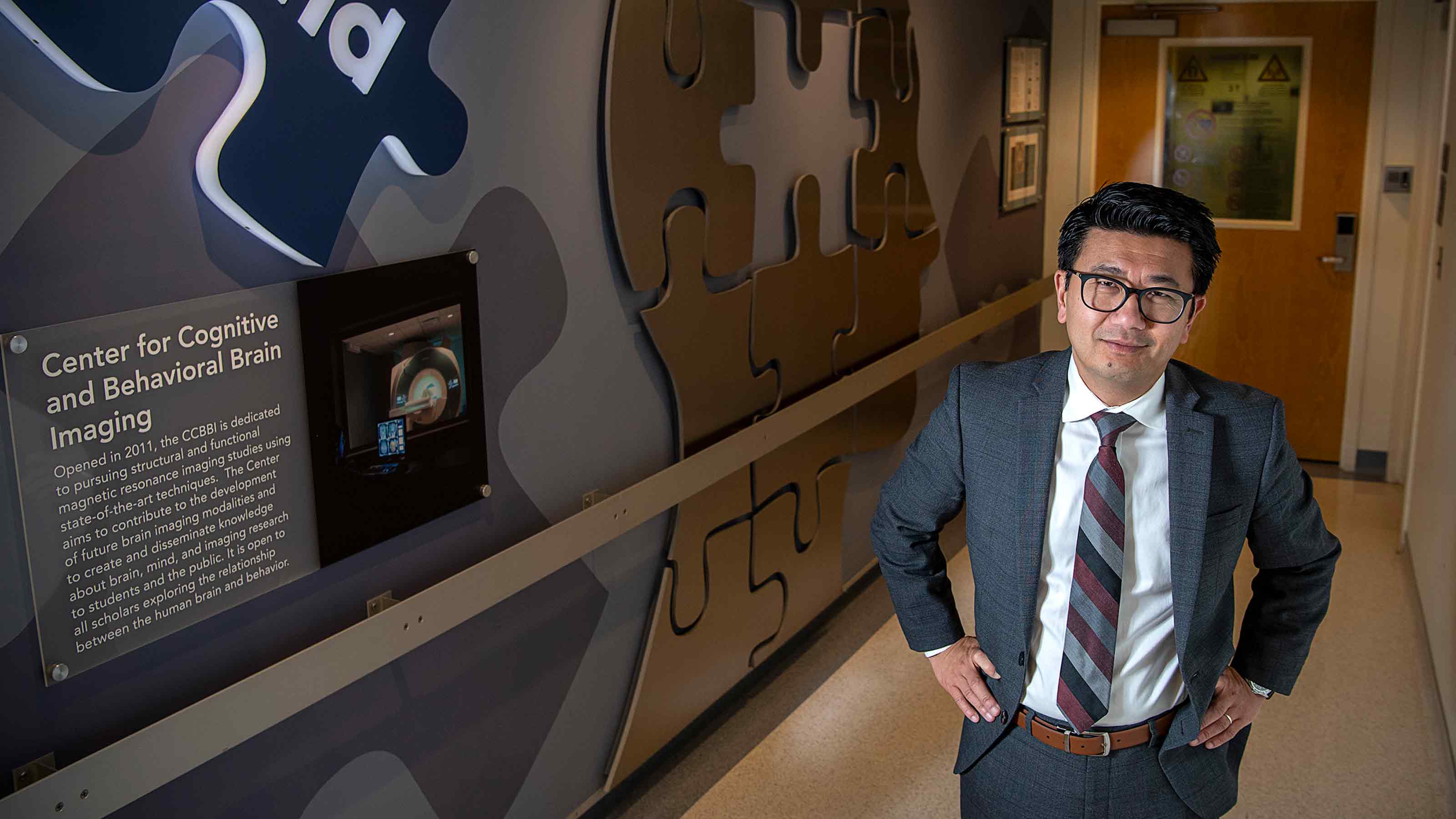
- Question How is mental illness diagnosed?
-
Answer
Traditionally, a doctor or mental health professional talks to a patient in a formal interview about symptoms, thoughts, feelings and patterns of behavior to learn more about the patient’s experience and functioning. Sometimes psychological tests are administered to help supplement that interview and clarify a diagnosis of a mental health disorder. At times, brain imaging is needed, but not often utilized. Current research aims to use brain imaging and other psychophysiological tools to help patients understand their mental health and guide treatment decisions.
- Question How do stress, trauma and adversity affect the brain?
-
Answer
Stress and trauma not only change our cognitive and psychological perspective but also our biology in terms of changes to the brain. Stress activates the “fight or flight” survival system and increases stress hormones and chemicals that if persistent/chronic, may lead to depression and post-traumatic stress disorder. These changes can be measured using modern brain imaging technologies (magnetic resonance imaging/MRI, electroencephalography/EEG) and with biological assays (blood, saliva) and can inform us about how stress impacts our biology and our response to stress, good and bad.
- Question Can you target medication and treatment based on this information?
-
Answer
Current research is pursuing the very important and clinically relevant question of how do our current treatments work, and for whom? In the clinic, we have two main evidence-based treatment recommendations for patients — medications and/or talk/behavior therapy. The challenge is picking which choice is better based on clinical wisdom, provider availability, patient preference and/or trial-and-error. We don’t make the choice based on biologically based objective measures. New research suggests that we can use brain imaging and other psychophysiological tools and neurocognitive assessments to guide patients to the treatments most likely to work for them. This is a common practice in other disciplines of medicine, and we anticipate our field will follow suit.
- Question How can the use of brain imaging help reduce stigma around mental illness?
-
Answer
Amongst other root causes, the brain is central to how we think about cognition, behavior and mental illness. Understanding that the brain, an important bodily organ, is involved in mental illness is critical. The good news is that the brain is very plastic and flexible so we can work on improving our brain function just like we do with other parts of our body. Stress and adversity can negatively affect the brain, but we can also train the brain to develop positive, resilience-based coping strategies to deal with and prepare for stress and adversity.
Advances in neuroimaging allow us to show a patient why they feel the way they do and how changes in their brain contribute to symptoms and behaviors. This can also help ease the burden of self-blame, guilt and shame patients often feel for their mental illness.
- Question How can you help a friend or a family member who is struggling with depression?
-
Answer
First, you can listen with compassion and empathy, without dismissing or judging. This can encourage more openness, allowing a loved one to discuss depression and desperation and feel more comfortable reaching out for help. Second, you can ask questions, which shows that you care enough to learn more about the person's struggles. Social connection is so important in helping someone feel that they are not alone.
Don’t hesitate to ask about the possibility of suicide. It may save the person’s life. It is important to keep a person in crisis safe until you can connect them with others who can provide support and mental health treatment, which can decrease depression and reduce suicide risk. People should know that treatment is out there, and that treatment works.

Compassionate mental health care
Explore the mental health services and programs offered at Ohio State.
Learn more




